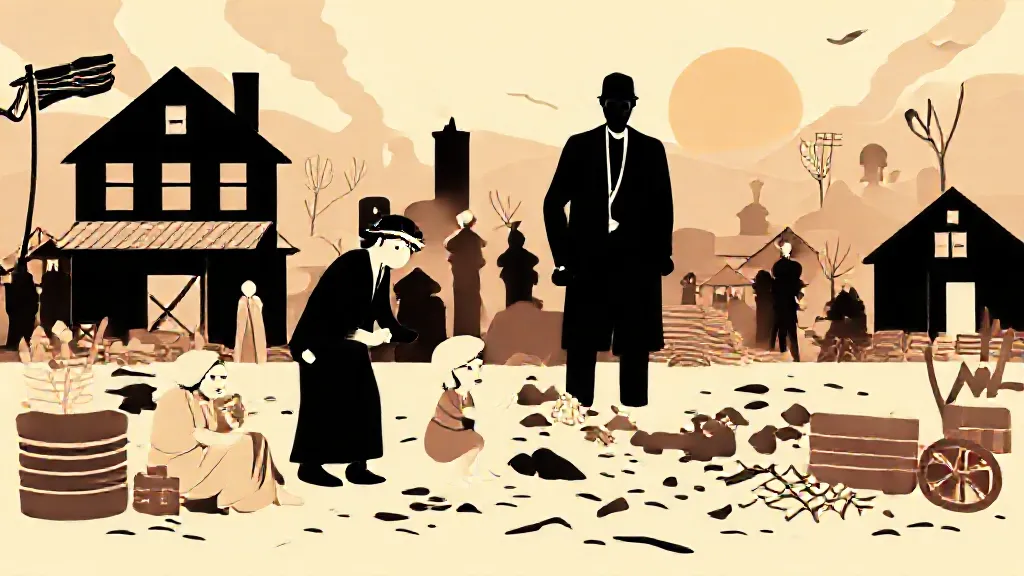The Great Depression, which began with the stock market crash of 1929 and lasted throughout the 1930s, was a period of unprecedented economic downturn that had profound effects on the global landscape. The crisis led to massive unemployment, widespread poverty, and significant changes in government policy and societal structure. Understanding the effects of the Great Depression requires a comprehensive look at its economic, social, and political ramifications.
Economic Collapse and Unemployment
The immediate economic impact of the Great Depression was catastrophic. In the United States, unemployment soared to about 25% by 1933, with millions of Americans unable to find work. Businesses failed at an alarming rate, with an estimated 30,000 companies going bankrupt during the early years of the depression.
The agricultural sector was also severely affected, as falling prices and drought conditions led to the Dust Bowl, further displacing farming families and exacerbating food shortages.
Social Impacts and Family Dynamics
The social fabric of society was deeply altered by the Great Depression. Families faced the strain of unemployment and poverty, leading to increased domestic tensions and changes in family dynamics.
Many families were forced to move in together to pool resources, while others experienced the heartbreak of separation as members sought work elsewhere. The psychological toll was significant, with rising rates of depression and anxiety among those affected by the economic downturn.
Political Changes and Government Intervention
The Great Depression also catalyzed significant political changes.
In the United States, the crisis led to the election of Franklin D. Roosevelt and the implementation of the New Deal, a series of programs aimed at economic recovery. This marked a shift in the role of government, as it began to take a more active role in economic management and social welfare.
Similar movements emerged globally, with various governments adopting interventionist policies to combat the economic crisis.
Cultural Shifts and the Arts
The cultural landscape was also transformed during the Great Depression. The era gave rise to a rich tapestry of artistic expression, as writers, musicians, and visual artists sought to capture the struggles of the time.
The Works Progress Administration (WPA) funded numerous cultural projects, allowing artists to create works that reflected the realities of life during the depression, such as Dorothea Lange's iconic photographs of displaced families and the literature of John Steinbeck.
Long-term Economic Consequences
The effects of the Great Depression were not limited to the immediate aftermath; they had lasting implications for the global economy. The crisis led to increased regulation of financial markets and the establishment of social safety nets, such as Social Security in the United States.
These changes aimed to prevent another economic collapse and provided a framework for economic stability in the decades to follow.
Global Impact and International Relations
The Great Depression was not confined to the United States; it had a profound impact on economies worldwide. Countries that relied heavily on exports, such as those in Europe and Latin America, experienced severe downturns.
The economic turmoil contributed to political instability in various regions, leading to the rise of extremist movements, including fascism and militarism, which ultimately set the stage for World War II.
Lessons Learned and Economic Policy Reforms
The economic challenges posed by the Great Depression prompted reevaluation of economic theories and practices. Economists like John Maynard Keynes argued for increased government spending to stimulate demand, leading to the adoption of Keynesian economics in the post-war period.
This shift influenced economic policy for decades, emphasizing the importance of government intervention during economic downturns.
Conclusion: A Legacy of Resilience
The Great Depression left an indelible mark on society, shaping the economic, social, and political landscape for generations. While the immediate effects were devastating, the resilience demonstrated by individuals and communities during this challenging time laid the groundwork for future recovery and reform.
The lessons learned from the Great Depression continue to inform economic policies and social programs today, reminding us of the importance of preparedness and intervention in times of crisis.
